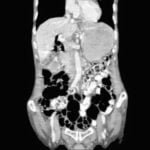
Top Five lifestyle changes to reduce your high cholesterol.
Top 5 lifestyle changes to reduce cholesterol
Lifestyle changes can help reduce cholesterol, keep you off cholesterol-lowering medications or enhance the effect of your medications. Here are five lifestyle changes to get you started. It is well known that a
high cholesterol increases your risk of heart disease and heart attacks.
Make following lifestyle changes to reduce cholesterol.
1. Lose weight
Be determined to reduce weight and bring it to normal . Well carrying some extra pounds — even just a few — contributes to high cholesterol. Losing as little as 5 to 10 percent of your body weight can help significantly reduce cholesterol levels.
Start by taking an honest, thorough look at your eating habits and daily routine. Sometimes we eat without being hungry, take a walk instead. As the saying goes, eat food like a medicine otherwise you will end up eating medicine like food.
If you pick up fast food for lunch every day, pack something healthier from home. If you’re sitting in front of the television, try munching on carrot sticks instead of potato chips as you watch.
Take time and enjoy rather than “devouring” your food. Don’t eat mindlessly.
And look for ways to incorporate more activity into your daily routine, such as using the stairs instead of taking the elevator. Take stock of what you currently eat and your physical activity level and slowly work in changes.
2. Eat heart-healthy foods
It is never too late . Even if you have years of unhealthy eating under your belt, making a few changes in your diet can reduce cholesterol and improve your heart health.
- Choose healthier fats. Saturated fats, found in red meat and dairy products, raise your total cholesterol and low-density lipoprotein (LDL) cholesterol, the “bad” cholesterol. As a general rule, you should get less than 7 percent of your daily calories from saturated fat. Instead, choose leaner cuts of meat, low-fat dairy and monounsaturated fats — found in olive, peanut and canola oils — for a healthier option.
- Eliminate trans fats. Trans fat can be found in fried foods and many commercial baked products, such as cookies, crackers and snack cakes. CONSUME LESS OIL
- Limit the cholesterol in your food. Aim for no more than 300 milligrams (mg) of cholesterol a day — less than 200 mg if you have heart disease or diabetes. The most concentrated sources of cholesterol include organ meats, egg yolks and whole milk products. Use lean cuts of meat, egg substitutes and skim milk instead.
- Select whole grains. Various nutrients found in whole grains promote heart health. Choose whole-grain breads, whole-wheat flour and brown rice.
- Stock up on fruits and vegetables. Fruits and vegetables are rich in dietary fiber, which can help lower cholesterol. Snack on seasonal fruits. Experiment with veggie-based casseroles, soups and stir-fries. If you prefer dried fruit to fresh fruit, limit yourself to no more than a handful (about an ounce or two). Dried fruit tends to have more calories than does fresh fruit.
- Eat foods rich in omega-3 fatty acids. Omega-3 fatty acids can help lower your LDL (“bad”) cholesterol. Some types of fish — such as salmon, Other good sources of omega-3 fatty acids include walnuts, almonds and ground flaxseeds.
3. Exercise on most days of the week
Whether you’re overweight or not, exercise can reduce cholesterol. Better yet, moderate physical activity can help raise high-density lipoprotein (HDL) cholesterol, the “good” cholesterol. Remember that adding physical activity, even in 10-minute intervals several times a day, can help you begin to lose weight. Just be sure that you can keep up the changes you decide to make. Consider:
- Taking a brisk daily walk during your lunch hour
- Riding your bike to work
- Swimming laps
- Playing a favorite sport
To stay motivated, join an exercise group. And remember, any activity is helpful. Even taking the stairs instead of the elevator or doing a few sit ups while watching television can make a difference.
4. Quit smoking
If you smoke, stop. Quitting may improve your HDL cholesterol level. And the benefits don’t end there. Just 20 minutes after quitting, your blood pressure decreases. Within 24 hours, your risk of a heart attack decreases. Within one year, your risk of heart disease is half that of a smoker. Within 15 years, your risk of heart disease is similar to someone who never smoked.
5. Stop alcohol
Although moderate use of alcohol has been linked with higher levels of HDL cholesterol — but the benefits aren’t strong enough to recommend alcohol for anyone who doesn’t already drink. Drinking too much alcohol can lead to serious health problems, including high blood pressure, heart failure and stroke and many cancers Stop alcohol it leaves no organ un affected .
Join the mailing list!
Get the latest articles delivered right to your inbox!

